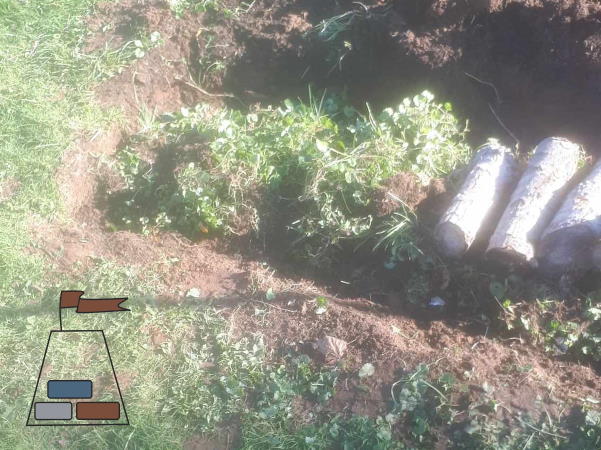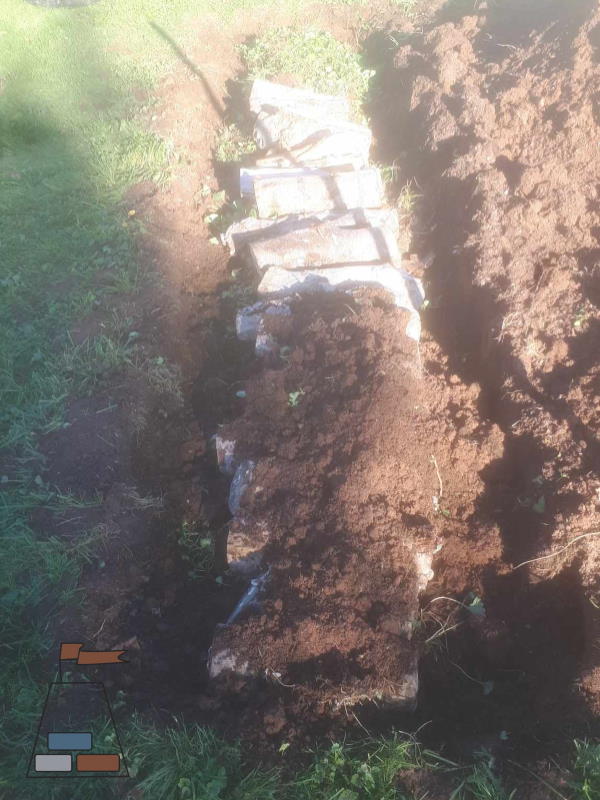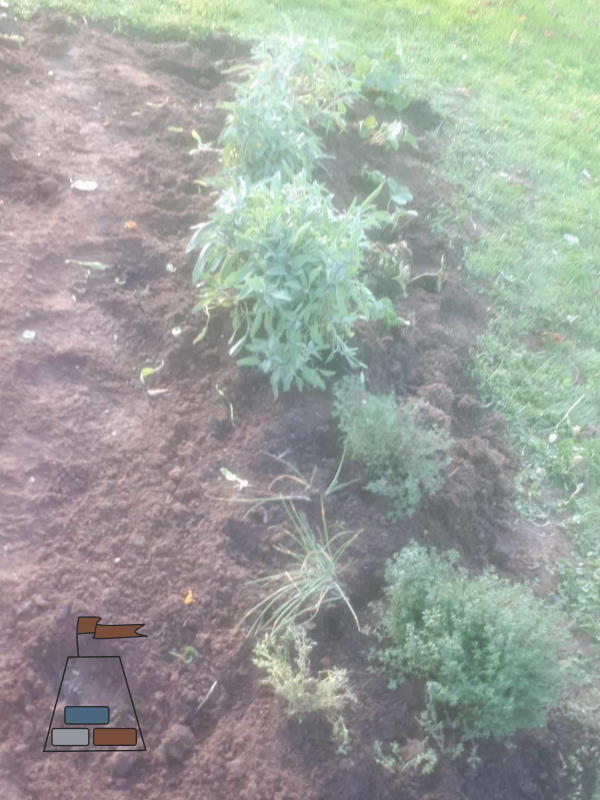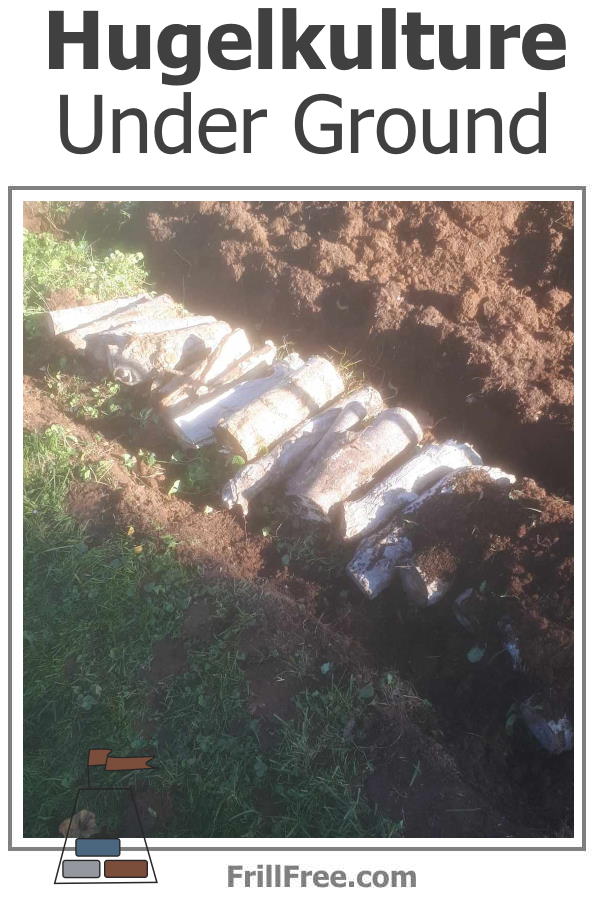- Homesteading
- Methods of Organic Farming
- Hugelkultur
- Hugelkultur, Under Ground
Hugelkultur, Under Ground
Simple Yet So Effective
I had a very soggy area where water pooled after a rain, and during snow melt. So building on the Hugelkultur method, I placed logs in a trench, then planted on top.
The trench was dug in the garden, where the sage and other herbs were, so I knew they would be okay with the soil.
Digging it out was fairly easy, it's loam with a high clay content, but good consistency and no stones at all. The previous owner had put crushed shells on all the beds, which got rearranged when I showed up - no planting in rows for this cowboy!
Wide raised beds all the way, with wide walkways in between, for wheelbarrow and walker use.
 Hugelkultur, corduroy style. This is the trench partially filled, with weeds at one end covering the logs
Hugelkultur, corduroy style. This is the trench partially filled, with weeds at one end covering the logsThe soil was placed on the top of the adjacent bed, then partially rotten poplar logs were corduroid into place. They were all similar sizes, about four to six inches across.
You could use any other kind of wood that's available, but make sure it's something that quickly goes punky and deteriorates into the soil and will add to it, rather than taking away.
Birch, willow or similar easily rotted wood works, avoid evergreens as they contain turpenoids and other things that might not be agreeable to the soil inhabitants.
If you use maple, locust or any other slightly greasy wood, be prepared for it to take a long time to rot down.
 Covering the logs with the soil was easy as it was on top of the adjacent bed
Covering the logs with the soil was easy as it was on top of the adjacent bedAfter the wood is laid in place, then we added a lot of weeds, killing two birds with one stone - weeding the garden, and adding the organic matter to the soil. The weed seeds won't germinate under the soil.
Once the soil is added to the top, it makes a slight mound, where the sage, thyme and other plants can form a little guild, with their feet above water.
 Hugelkultur planted with sage and thyme - they won't get wet feet up above the water table
Hugelkultur planted with sage and thyme - they won't get wet feet up above the water tableI was amazed at how well the herbs and volunteer tomatoes do in this bed. It's not big, maybe two feet wide by about eight feet long, but it's got a lot of stuff going on.
The plants will be fed a tiny bit of moisture from the rotting logs below, as summer wears on and there's no rain. I won't worry about drought using this method!















